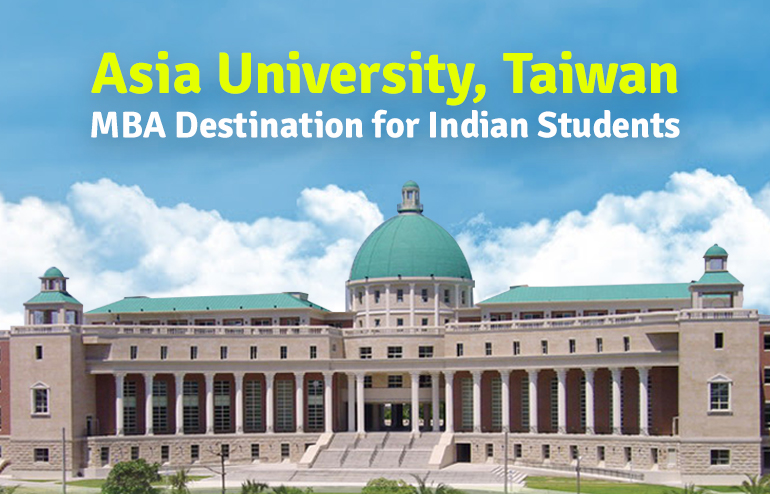As we have already established in our previous post, Taiwan is a great study destination for further studies. Asia University, which is located in Taiwan, is one of the top universities for pursuing your MBA. Established in 2001, Asia University is an AACSB Accredited University in Taiwan which is globally acknowledged for its reputation as a University of eminence in the field of business studies.
In this blog post, we will be discussing everything you should know to study in Asia University.
University Rankings:
Asia University is ranked 301 in QS Asia University Rankings 2019.
Cost of MBA from Asia University v/s Top Indian Business Schools:
Studying MBA from Asia University per semester costs as little as NT$ 47,800/- only. This converted in Indian rupees is approximately INR 107,389/- for one semester. This means, that in total, you will spend roughly around 4.5 Lacs for an MBA Program in Asia University which dulls in comparison to pursuing your MBA from Top Indian Management Schools which charge approximately 21-30 Lacs for their MBA programs.
Scholarship and Financial aid offered in Asia University:
Asia University provides a limited number of scholarships each year for talented students from other countries. All applicants may have an opportunity to compete for scholarship provided by Asia University, depending on the qualification of applicants, program admitted, and funding available. Applicants who have received other scholarships are not eligible to apply.
• Taiwan Scholarship offers monthly stipend of NT$30,000 (approximately US$882). After receiving an admission letter from Asia University, completed documents must be sent by the end of March to the nearest Taiwan Embassy or Representative Office located in the country that applicants reside.
• Full Scholarship includes tuition waiver, dormitory fee waiver, and monthly stipend of NT$6,000 (approximately US$176).
• Tuition Waiver Scholarship offers full tuition waiver.
• Half-Tuition Waiver Scholarship offers 50% tuition waiver.
To apply for scholarship provided by Asia University, a completed form with all required application materials must be sent to the Center for International Academic Exchange. Awarded students in Bachelor’s, Master’s, and Doctoral programs are supported for at most four, two, and three years, respectively. An average score of less than 75 and 80 in previous academic year for undergraduate and graduate students, respectively, will result in disqualification of receiving scholarship.
Documentation needed to study in Asia University:
• Two application forms attached with a 2-inch recent photo.
• One copy of the highest-level diploma (enclosed with a Chinese or an English translation of the diploma).
• One official transcript (in English or Chinese) from the school you have attended.
• Two letters of recommendation.
• One study plan
• One health certificate issued within the last six months (attached HIV certification).
• One copy of passport.
• An original bank statement issued within six months clearly stating a balance.
• The receipt of application fee US$20.
• English or Chinese proficiency certificate
Return on Investment:
Getting your MBA from Asia University will cost you approximately 5 Lacs. You will graduate with a placement package of approximately 25 Lacs/annum. This package is on-par with Top Indian Business Schools and it costs only a fraction of the price. This means a higher return on your investment. Moreover, Asia University is also AACSB Accredited which is a major plus point.
To know more about AACSB Accreditation, click here.
To know more about Asia University, click here.
































































